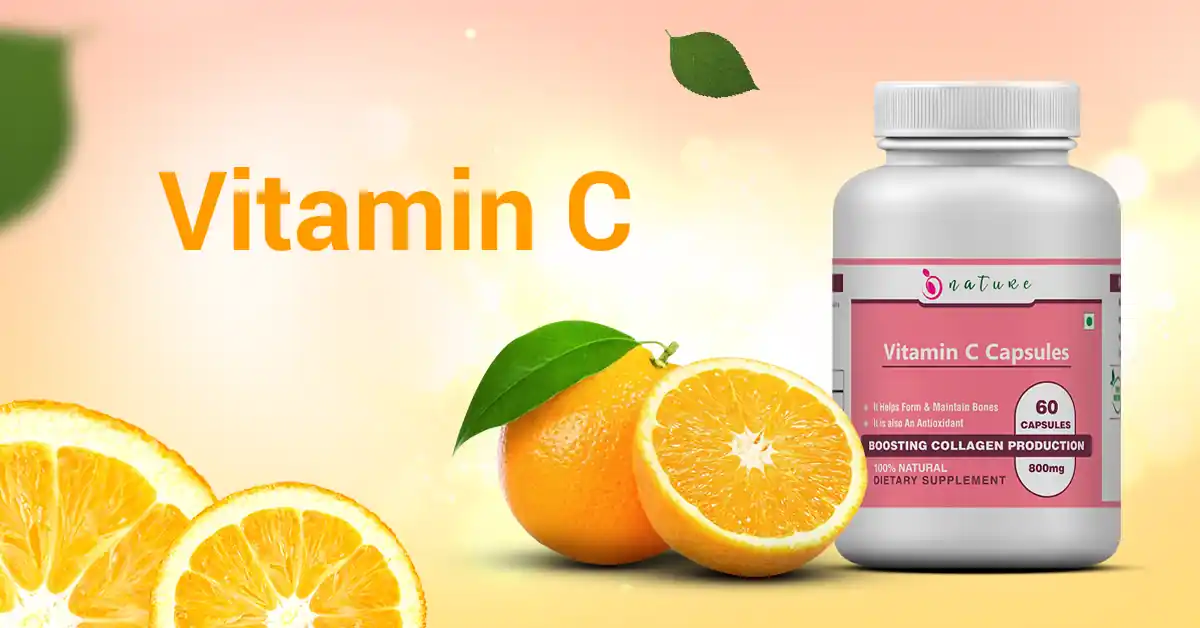Best C Vitamin, often referred to as L-ascorbic acid, is a crucial nutrient that plays a vital role in maintaining overall health. Known for its immune-boosting properties, Vitamin C is a popular supplement choice for many. In this comprehensive guide, we will explore everything you need to know about L-ascorbic acid., including its ingredients, benefits, dosage recommendations, potential side effects, and much more. So, let’s dive into the world of L-ascorbic acid, the ‘best C vitamin’ (Halliwell, B., 2001.)
What Is Best C Vitamin ?
C vitamin is a water-dissolvable nutrient tracked down in different food sources and dietary enhancements.. It is renowned for its antioxidant properties, which help protect cells from damage caused by free radicals. Unlike some animals, humans cannot produce L-ascorbic acid. naturally, making it essential to obtain this nutrient through their diet or supplementation (Bendich, A., Machlin, L.J., Scandurra, O., Burton, G.W. and Wayner, D.D.M., 1986.)
Ingredients Of Vitamin C
Vitamin C is a simple molecule with the chemical formula C6H8O6. Its molecular structure consists of six carbon atoms, eight hydrogen atoms, and six oxygen atoms. The presence of two hydroxyl groups in the molecule is responsible for its acidic nature.
Benefits & Uses Of Vitamin C
Vitamin C offers a wide range of health benefits, making it a popular supplement choice for many. Let’s delve into the various ways L-ascorbic acid. can improve your well-being.
1. Immune System Support
One of the most notable advantages of L-ascorbic acid is its capacity to help the invulnerable framework.
It plays a pivotal role in the production of white blood cells, which are essential for fighting infections. Regular intake of Vitamin C can help reduce the duration and severity of colds and other common illnesses. (Ströhle, A. and Hahn, A., 2009.)
2. Antioxidant Properties
Vitamin C is a potent antioxidant that helps protect the body from oxidative stress and free radical damage. This, in turn, may reduce the risk of chronic diseases such as heart disease and cancer.
3. Skin Health
Vitamin C is essential for the production of collagen, a protein that is crucial for skin health and elasticity. It can help reduce the appearance of wrinkles, fine lines, and age spots, promoting a youthful complexion.
4. Wound Healing
Vitamin C aids in the body’s natural wound-healing process by promoting the growth of new connective tissues. It also helps the body absorb iron from plant-based foods, further contributing to tissue repair.
5. Eye Health
Regular consumption of Vitamin C may reduce the risk of cataracts and age-related macular degeneration, two common eye conditions that can lead to vision loss.
6. High Blood Pressure
Some studies suggest that Vitamin C may help lower blood pressure, which is a risk factor for heart disease. It does so by relaxing blood vessels and improving blood flow.
7. Asthma Management
For individuals with asthma, Vitamin C may help reduce the severity of symptoms and improve lung function.
8. Iron Absorption
Vitamin C enhances the absorption of non-hem iron, which is found in plant-based foods like beans and spinach. This can be especially beneficial for individuals following a vegetarian or vegan diet.
9. Mood Enhancement
There is some evidence to suggest that Vitamin C may have a positive impact on mood and reduce symptoms of depression.
10. Exercise Recovery
Athletes and individuals engaged in strenuous physical activity may benefit from Vitamin C supplementation, as it can reduce muscle soreness and aid in post-exercise recovery.
Measurement and How to Take Vitamin C
Determining the appropriate dosage of Vitamin C can be a bit tricky, as it varies depending on age, sex, and individual health needs. The Suggested Dietary Stipend (RDA) for L-ascorbic acid is as per the following:
• Infants (0-6 months): 40 milligrams (mg)
• Infants (7-12 months): 50 mg
• Children (1-3 years): 15 mg
• Children (4-8 years): 25 mg
• Children (9-13 years): 45 mg
• Teen boys (14-18 years): 75 mg
• Teen girls (14-18 years): 65 mg
• Adult men (19 years and older): 90 mg
• Adult women (19 years and older): 75 mg
• Pregnant teens (14-18 years): 80 mg
• Pregnant adults (19 years and older): 85 mg
• Breastfeeding teens (14-18 years): 115 mg
• Breastfeeding adults (19 years and older): 120 mg
However, these RDAs are set to prevent deficiency diseases like scurvy and may not represent the optimal intake for overall health and well-being.
Many experts recommend higher doses of Vitamin C for specific health goals. For general health maintenance and immune support, a daily dose of 500-1,000 mg is often recommended. If you’re considering higher doses, it’s advisable to consult a healthcare professional for guidance.
L-ascorbic acid. is available in various forms, including capsules, tablets, chewable tablets, and powdered supplements. The choice of formulation often comes down to personal preference and ease of consumption. Some people prefer L-ascorbic acid., as it offers convenience and precise dosing.
Side Effects Of Vitamin C
Vitamin C is generally considered safe when taken within recommended dosages. However, excessive intake of L-ascorbic acid can lead to side effects, including:
1. Digestive Distress
Taking large doses of L-ascorbic acid may cause digestive issues such as diarrhea, nausea, and abdominal cramps. These symptoms typically resolve when the dose is reduced.
2. Kidney Stones
Individuals with a history of kidney stones should exercise caution when taking high doses of Vitamin C, as it may increase the risk of kidney stone formation.
3. Iron Overload
L-ascorbic acid enhances the absorption of non-hem iron, which can be problematic for individuals with iron overload disorders like hemochromatosis.
4. Interaction with Medications
L-ascorbic acid enhancements might communicate with specific meds, including blood thinners and chemotherapy drugs. It’s fundamental to illuminate your medical services supplier pretty much all enhancements and prescriptions you are taking.
5. Allergic Reactions
Although rare, some people may experience allergic reactions to Vitamin C supplements, characterized by symptoms like hives, itching, and swelling.
Related Warnings Vitamin C
When considering Vitamin C supplementation, it’s essential to be aware of a few key warnings and precautions:
1. Quality Matters
Not all L-ascorbic acid supplements are created equal. Look for high-quality products from reputable brands to ensure purity and potency.
2. Storage Conditions
L-ascorbic acid is sensitive to heat and light, so store supplements in a cool, dark place to maintain their effectiveness.
3. Interactions
As mentioned earlier, L-ascorbic acid can interact with certain medications. Always consult your healthcare provider before starting any new supplement regimen, especially if you are taking prescription medications.
4. Individual Needs
The optimal dosage of Vitamin C can vary from person to person, depending on factors such as age, sex, overall health, and specific health goals. Tailor your L-ascorbic acid admission to your singular requirements.
FAQ
Many products of the soil are magnificent wellsprings of L-ascorbic acid.
Potential associations include:
Aluminum. Taking L-ascorbic acid can build your ingestion of aluminum from prescriptions containing aluminum, like phosphate covers. …
Chemotherapy. …
Estrogen. …
Protease inhibitors. …
Statins and niacin. …
Warfarin (Jantoven).
Grown-ups matured 19 to 64 need 40mg of L-ascorbic acid daily. You ought to have the option to get all the L-ascorbic acid you really want from your day to day diet. L-ascorbic acid can’t be put away in the body, so you want it in your eating routine consistently.
You can also read : Boost Your Immune System With Vitamin C: Key Benefits





